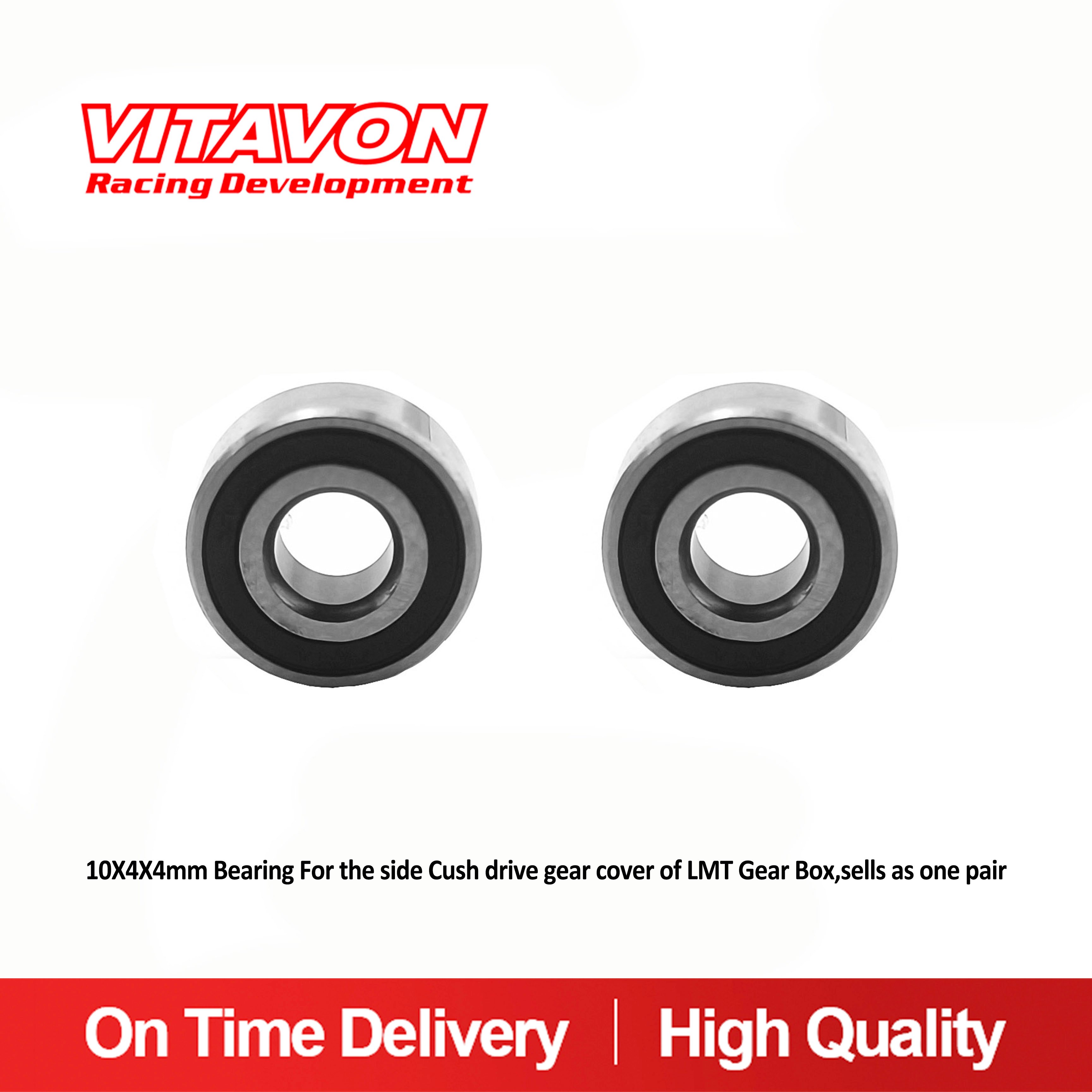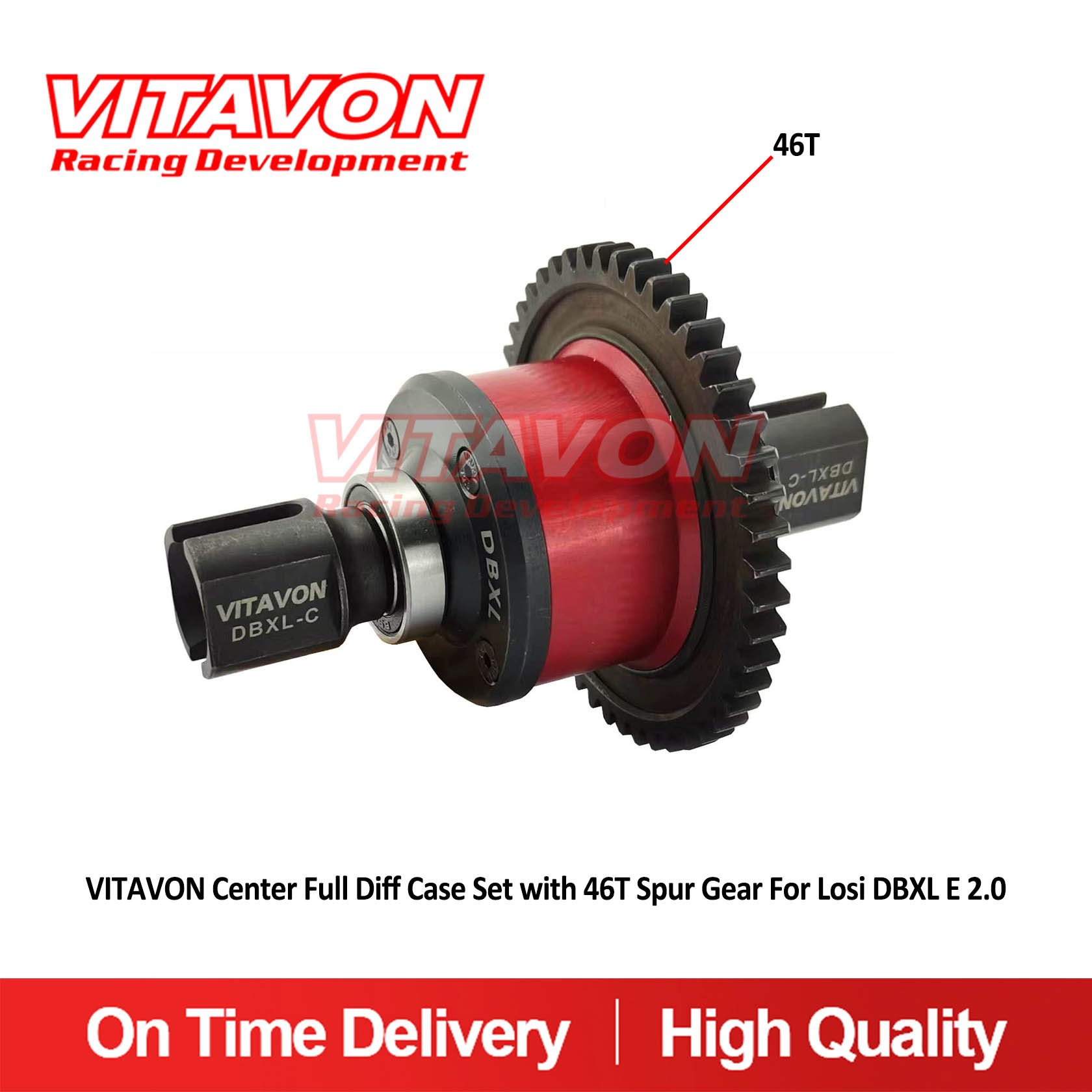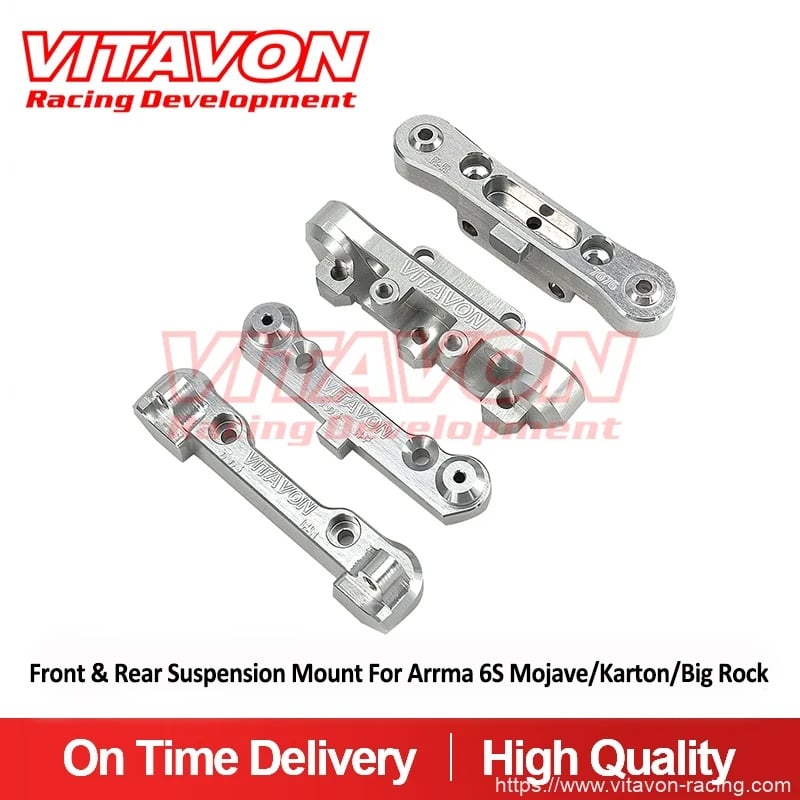Navigating Import Export Certifications for Best Emax Traxxas A Comprehensive Tutorial for Success
Table of Contents
- Understanding Import Export Certification Basics for Emax Traxxas
- Essential Documentation for Emax Traxxas Import and Export Success
- Key Regulatory Compliance Requirements for Emax Traxxas Products
- Navigating the Application Process for Import Export Certifications
- Common Challenges and Solutions in Emax Traxxas Certification
- Tips for Maintaining Compliance and Updating Certifications Regularly
- FAQS
- Related Posts
The growing popularity of remote-controlled (RC) vehicles, particularly in the Emax Traxxas segment, has led to a significant surge in the demand for high-quality racing components. According to industry reports, the global RC car market is projected to reach USD 1.5 billion by 2025, highlighting the increasing consumer interest in advanced racing systems. At Dongguan Vitavon Sports Goods Co., Ltd., we pride ourselves on delivering precision-engineered components utilizing OEM quality standards, aerospace aluminum, and hardened HS steel processes. Our commitment to a "Modular Design" across all elements of the racing system ensures that enthusiasts can navigate the intricate landscape of import-export certifications with ease, ultimately enhancing their racing experience. In this comprehensive tutorial, we will explore essential strategies for leveraging Emax Traxxas certifications, ensuring that you stay ahead in the competitive racing scene while relying on the best design solutions provided by our VITAVON Racing System.

Understanding Import Export Certification Basics for Emax Traxxas
If you're diving into the world of importing and exporting Emax Traxxas products, you’ll want to really get a grip on the whole certification thing. It’s super important to have those import-export certifications in place—they’re what make sure your products meet the rules and standards of different markets. So for all you Emax Traxxas fans out there, getting to know the basics of these certifications can really smooth out your operations and open up some exciting trading doors.
Now, when you’re stepping into this import-export game, kicking things off with the right documents is key. Take some time to hunt down what specific certifications you’ll need for Emax Traxxas gear, like safety and compliance. And remember, every country has its own set of rules, so keeping yourself in the loop can save you from costly hiccups down the line.
Here’s a little tip: don’t hesitate to chat with local authorities or trade organizations to get the scoop on what certifications are essential. Being proactive not only keeps you on the right side of the law but also opens the door for some great networking opportunities. Plus, you might want to reach out to a customs broker or a trade expert; they can really help you untangle those tricky certification requirements and processes. Trust me, it’ll make your life a lot easier!
Navigating Import Export Certifications for Best Emax Traxxas - A Comprehensive Tutorial for Success
| Certification Type | Description | Required Documents | Processing Time | Cost Estimate |
|---|---|---|---|---|
| Import Certificate | Required for importing goods into a country. | Invoice, Bill of Lading, Certificate of Origin | 5-10 business days | $150 - $300 |
| Export License | Necessary for exporting certain categories of goods. | Application Form, Product Specification | 2-4 weeks | $200 - $500 |
| Certificate of Origin | Verifies the country where the goods were manufactured. | Manufacturer's Declaration, Invoice | 1-3 days | $50 - $100 |
| Safety Compliance Certificate | Ensures products meet safety standards. | Test Reports, Technical Documentation | 3-6 weeks | $300 - $800 |
Essential Documentation for Emax Traxxas Import and Export Success
Let’s be real—getting a handle on all the ins and outs of import and export certifications can be a bit of a maze, especially if you want your business to stand out in the competitive racing products scene. Take Vitavon Sports Goods Co., Ltd., for example. They’re all about those top-notch components for Emax Traxxas, and knowing the ropes around documentation is super important for them. Having the right certifications doesn’t just check off regulatory boxes; it actually helps build trust with partners and customers all over the globe. So, being familiar with the nitty-gritty of importing and exporting is crucial if you want to make the leap from production to market without a hitch.
At Vitavon, we’re all for excellence in racing products, and that’s reflected in how carefully we pay attention to detail and our quality standards. We use aerospace-grade aluminum and hardened HS steel to make sure every product meets OEM quality. When you’re dealing with import/export certifications, it’s super vital to have all your documentation in order to show off the quality of your products. You’ll want things like material safety data sheets, compliance certificates, and any other necessary declarations. By keeping our modular design philosophy aligned with strict documentation, we make sure our products aren’t just high-performing, but also trustworthy and compliant in international markets.
Key Regulatory Compliance Requirements for Emax Traxxas Products
You know, figuring out the whole import-export certification maze is super important for anyone dealing with Emax Traxxas products. Seriously, staying on top of those key regulations doesn’t just keep things legit; it also boosts your market credibility. According to some research from the International Trade Administration, around 20% of all trade barriers come from compliance headaches. That’s why it’s so important for exporters to really know their stuff about the certifications that apply to what they’re selling. If you can get your head around the requirements from agencies like the FAA or the EASA, you’ll definitely make the import-export process way smoother.

And hey, don’t overlook the standards set by groups like the American National Standards Institute (ANSI) either. These can really affect how your product is received in different markets. A recent industry report even showed that meeting certain safety and performance standards can bump up a product's appeal by as much as 30%! So yeah, it’s a big deal. This really highlights the importance of having all the right documentation and certifications, especially when it comes to Emax Traxxas products. Companies that take the time to wrap their heads around these regulations aren’t just ticking boxes – they’re actually setting themselves up to shine in a crowded global marketplace.
Navigating the Application Process for Import Export Certifications
So, diving into the application process for import-export certifications can feel really overwhelming, especially when you're dealing with something specialized, like the amazing Emax Traxxas. Trust me, the first thing you need to do is get a good grip on the specific certifications your products need. This usually means you’ll have to do some digging into the different regulatory bodies and check out their guidelines to make sure you’re on the up and up. Oh, and don’t forget to gather all the necessary docs—like product specs, safety info, and any existing certifications you might have. Those pieces are super important when it comes to getting approved.
Once you've got all the paperwork in order, it’s time to tackle those application forms. Make sure you fill them out accurately—like, really double-check each entry, because little mistakes can totally lead to delays. After you've hit that submit button, it’s a good idea to keep your game face on and stay proactive. Keep chatting with the certification authorities; it not only helps you keep tabs on your application progress but also shows that you’re seriously committed to staying compliant. And hey, be ready for any inspections or audits that might pop up—these can really help solidify your credibility in the import-export scene.
Common Challenges and Solutions in Emax Traxxas Certification
You know, dealing with import-export certifications can really be a tough nut to crack for folks over at Emax Traxxas. The rules can get super complicated and vary a lot from one region to another. One of the big problems many businesses face is the confusion that swirls around the certification processes, especially when it comes to techy products. It’s wild, but around 30% of companies out there find it hard to keep up with compliance mainly because they don’t quite get the local regulations. This just shows how important it is to have solid resources and guidance to navigate this maze.
On top of that, there are also these pesky logistical issues that pop up during product inspections and when trying to file for certification. A lot of companies end up facing delays because there aren’t any standardized procedures in place, which can seriously drive up costs and cause companies to miss out on killer market opportunities.
To tackle these headaches, it’s a good idea for businesses to get some expert advice and leverage tech to make the documentation process smoother. You know what? Recent industry analyses found that companies using digital solutions for managing certifications can slice their processing times by a whopping 40%! So, it’s super important for Emax Traxxas to jump on these innovations to make their certification journeys way easier.
Tips for Maintaining Compliance and Updating Certifications Regularly
You know, when you're wading through the tricky world of import-export certifications, keeping everything compliant is kinda mandatory for any business out there. It’s not just about ticking a box for regulations; updating your certifications shows that you genuinely care about quality and safety. A smart move is to create a thorough checklist that lays out all the necessary certifications and when they expire. This way, you can stay one step ahead of any potential hiccups and deal with problems before they even pop up.

Oh, and don’t forget the importance of having someone—or even a whole team—on compliance duty. This person needs to be sharp on the industry regulations and should be in the loop about any changes that might shuffle the certification requirements. Regular training and updates can help keep everyone in the know about new standards or practices. It’s all about nurturing a culture of compliance in your organization. In the end, if businesses focus on these practices, they can confidently navigate the import-export scene while building trust with partners and customers.
FAQS
: Proper documentation is crucial for compliance with regulations and helps build trust with partners and customers globally.
Vitavon utilizes aerospace-grade aluminum and hardened HS steel to ensure every product meets OEM quality standards.
Comprehensive documentation including material safety data sheets, compliance certificates, and any necessary declarations is essential.
Compliance with regulatory requirements ensures legal operations and enhances market credibility, which is vital in the competitive racing product sector.
Compliance can increase a product's marketability by as much as 30%, making it crucial for companies to adhere to established standards.
Key agencies include the Federal Aviation Administration (FAA) and the European Union Aviation Safety Agency (EASA).
Approximately 20% of all trade barriers stem from regulatory compliance issues, highlighting the need for exporters to understand relevant certifications.
By aligning their modular design philosophy with stringent documentation, Vitavon positions its products as high-performance, compliant, and trustworthy.
Companies that understand and fulfill regulatory requirements gain a competitive edge in the dynamic global marketplace.
Related Posts
-

Imagining the Future of RC Crawlers: The Unmatched Performance of Best Axial Scx10ii
-

China's Resilient Growth in Manufacturing the Best Axial Scx103 Amidst US China Tariff Challenges
-

Mastering Scx24 Transmission: A Comprehensive Guide to Enhancing Your RC Vehicle's Performance
-

Exploring Opportunities for Scx24 Transmission at the 137th Canton Fair Success
-

Exemplifying Excellence in Chinese Manufacturing with Leading Edge Best Analog Servo Solutions
-

Ultimate Solutions for Enhancing Performance with the Best Axial Scx10ii
Blog Tags:




